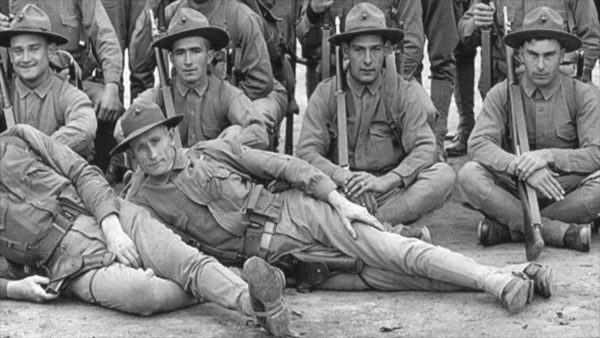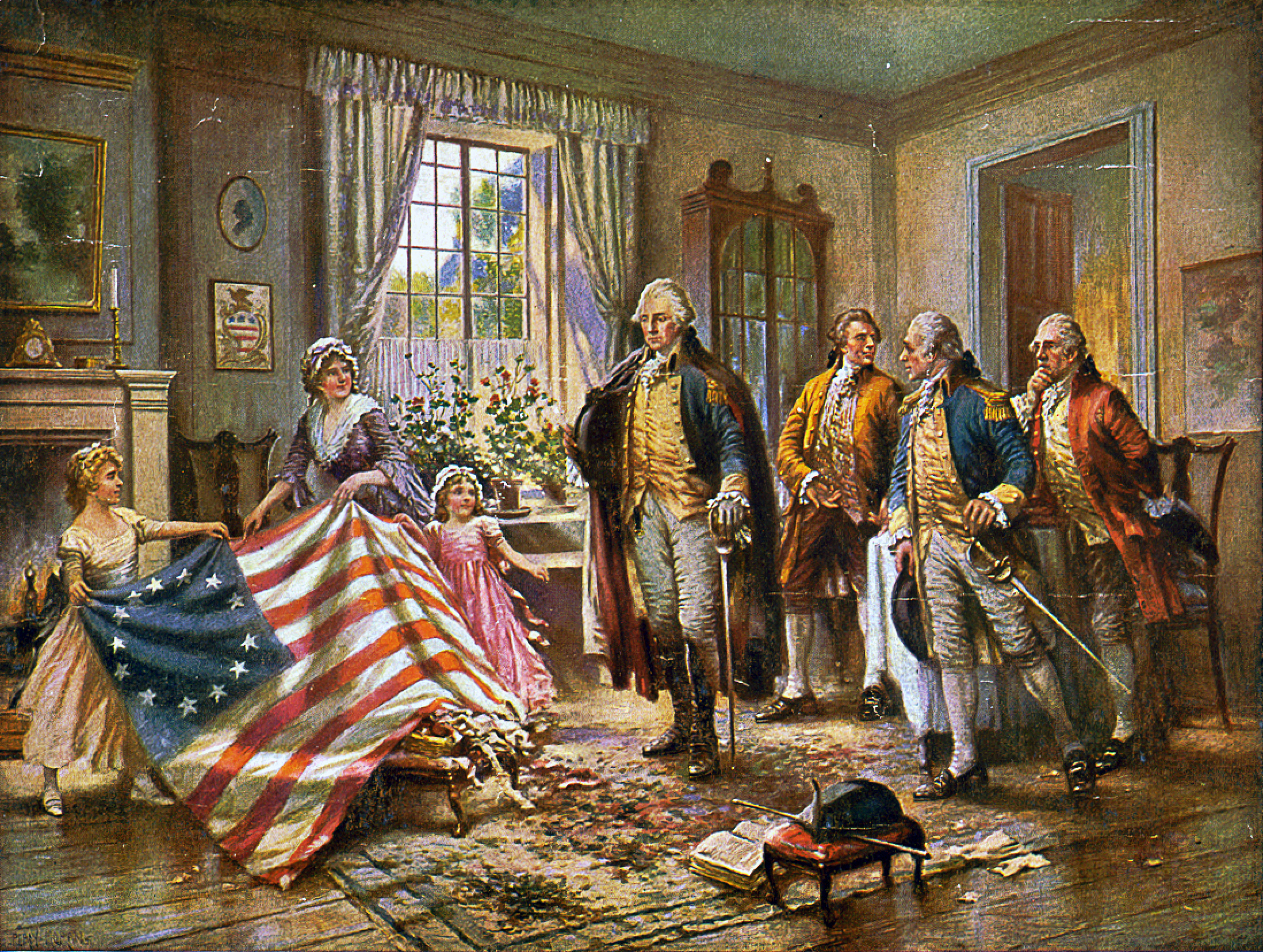June 14 in U.S. military history
1775: Following the Battles of Lexington and Concord, the Second Continental Congress establishes the Continental Army. Ten rifle companies are formed: six from Pennsylvania, two from Maryland, and two from Virginia. The force is disbanded after the American Revolution, but in 1792, President George Washington forms the Legion of the United States – the nation’s first “professional” fighting force – renamed the United States Army in 1796.
1777: Congress formally declares the “Stars and Stripes” as the official flag of the thirteen United States. The declaration resolves that it consists of “thirteen stripes, alternate red and white; that the union be thirteen stars, white in a blue field, representing a new constellation.”
1863: Days after bragging that he could hold the town of Winchester (Va.) against a Confederate force of any size, Maj. Gen. Robert H. Milroy’s garrison is surrounded and defeated by a corps led by Maj. Gen. Richard S. Ewell. The Rebels capture 4,000 Union troops, hundreds of wagons and horses, and 23 artillery pieces at the cost of only some 250 casualties in the Second Battle of Winchester.
1918: During a German artillery barrage of explosive and gas shells, Marine Gunnery Sgt. Fred W. Stockham gives his gas mask to a wounded comrade, exposing himself to the deadly agent. Stockton will die eight days later from gas exposure. 20 years later, his former lieutenant during the Battle of Belleau Wood (Clifton B. Cates, who will become the 19th Commandant of the Marine Corps) and Barak Mattingly (the man Stockham saved), succeed in their efforts to award Stockham the Medal of Honor, and a destroyer is later named in his honor.

1940: The German Sixth Army capture the French capital of Paris unopposed. The Nazi flag will fly over the Arc de Triomphe for four years until Free French forces and the American 4th Infantry Division take the city back.
1944: 75 B-29 Superfortress heavy bombers take off from forward air bases in China, targeting the Imperial Iron and Steel Works at Yawata, Japan – the first bombing raid on the Japanese mainland since the Doolittle Raid over two years ago. The crews had loaded their bombs in India and flew to China before the raid. 107 tons of bombs are dropped on a blacked-out Yamata, and unfortunately only one bomb hits the target.
Across the globe in Italy, Staff Sgt. Homer L. Wise’s platoon is held up by a German small-arms fire. Wise charges forward to carry a wounded soldier to friendly lines, then moves to an exposed position, killing two German soldiers and an officer armed with automatic weapons. As the battalion moves forward, they are halted again by a full frontal attack. Wise then moves ahead and takes out a German machinegun, then rushes to an exposed position atop a tank, restores its jammed mounted machine gun and rains down heavy fire on the enemy, enabling the battalion to capture its objective. Wise is awarded the Medal of Honor and retires as a first sergeant in 1966.
1945: While soldiers and Marines mop up Japanese resistance on Okinawa, the Joint Chiefs of Staff direct Gens. Douglas MacArthur, Omar Bradley, and Adm. Chester Nimitz to prepare plans to occupy Japan in case they suddenly surrender.
1952: Sgt. David B. Bleak of the 223rd Infantry Regiment volunteers to accompany a team on a mission to snatch an enemy soldier to gather intelligence. When the Americans are discovered, Bleak jumps into an enemy trench and kills two Chinese with his bare hands and eliminates another with his knife. Resuming the attack, he spots an enemy grenade fall near a comrade and shields his fellow soldier from the blast. As Bleak treats the wounded, he is shot himself, but still manages to carry a casualty to safety. But before he can reach a safe position, two enemy soldiers charge Bleak and his casualty, and he bashes their heads together. President Dwight Eisenhower awards him the Medal of Honor in 1953.
In the same vicinity, another 223rd Infantry Regiment soldier goes above and beyond the call of duty. Cpl. Clifton T. Speicher’s squad is pinned down by enemy small-arms, machinegun, and mortar fire. Speicher had already been wounded in the attack, but charges forward against an enemy position. He is hit again as the communists rain fire on the American attacker, but he enters the bunker, killing two with his rifle and a third with his bayonet. The bunker is silenced and Speicher continues on to the top of the hill with his men. The Americans carry the day, but Speicher dies from his wounds and is posthumously awarded the Medal of Honor.
1954: Pres. Dwight D. Eisenhower, five-star general and Supreme Commander of the Allied Expeditionary Forces in Europe during World War II, signs the law adding the words “under God” to the Pledge of Allegiance.
1985: Hezbollah and Islamic Jihad terrorists hijack TWA Flight 847 after the Boeing 727 lifts off from Greece. Aboard is a team of Navy SeaBee underwater construction divers returning to the United States. The hijackers beat the American military passengers aboard the plane and, upon landing in Beirut, Steelworker Second Class Robert D. Stethem is tortured and murdered, his body dumped on the tarmac. The plane makes multiple trips between Beirut and Algiers, and the remaining hostages are released in groups.
Stethem’s comrades spend the next 19 days in captivity. All survivors are awarded the Prisoner of War medal in 2015, and the Navy names a destroyer in Stethem’s honor.
